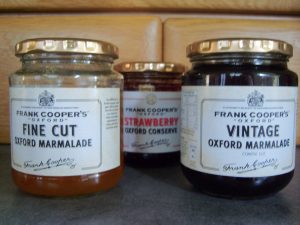A Brit in San Diego might be forgiven for wondering what the sign hung on the children’s theater’s box office actually means. Who will call whom at 5.30? Or is it a note to Will (missing a comma), asking him to call at 5.30? Continue reading
Category Archives: Yanks vs. Brits
X v Y: You say lit, I used to say lighted
Continuing Glosso’s September series, “X v Y”, we take a look at lit vs. lighted. Continue reading
The British “public school”: what does public really mean? Private?
Glosso’s “X v Y” series tackles the complicated matter of British schools: when are they public, and when are they private? Can any actually be both? Continue reading
X v Y: Careering and careening
Continuing Glosso’s month-long series “X v Y”, we look at two words that are spelled almost identically, and used almost interchangeably, but are not actually synonymous. Career and careen: what’s the story? Continue reading
X v Y: Sarcasm and jealousy: the darker sides of irony and envy (and the irony of Aristotle)
Glosso’s series, “X v Y”, takes a look at two sets of words — envy and jealousy, irony and sarcasm — that are often treated as synonyms but actually have substantially different meanings. Continue reading
X v Y: For one brief shining moment …
Next up in Glosso’s “X v Y” series: does momentarily mean very soon — or very briefly? Continue reading
Quite ambiguous
Can you think of a word that means one thing and its exact opposite, depending on the context in which it is used? Continue reading
X v Y: “Dr. Livingstone, I assume??”
The third post in Glosso’s X v Y series looks at assume v presume. Continue reading
The discomfort of pregnant pauses … … … … … … in different languages
Glosso apologizes for the slightly longer-than-normal pause that followed the last post. …
It wasn’t deliberate. …
But it was slightly awkward …
How long do you think a pause in conversation has to be before it becomes uncomfortable? Two seconds? Four seconds? Eight? Continue reading
Ich sage marmalade, you say jam … (But maybe not for long)
“Brussels MEP plots sweet revenge for Brexit by changing definition of MARMALADE so it includes German jam.” So screamed one of the more bizarre headlines in Tuesday’s Daily Mail. What does marmalade actually mean?
According to the OED, it’s “a preserve made from citrus fruit, especially bitter oranges.”
As the Daily Mail went on to explain, “Under EU rules the spread — a staple of many British breakfast tables and beloved by Paddington Bear — can only be labeled such if it contains at least 20 per cent citrus fruit. … This enshrines in law the British definition that it refers exclusively to spreads made from oranges or lemons. But Germans have traditionally used the name to refer to all sorts of jams made from a variety of fruits including strawberries and plums. … Jakob von Weizsäcker, a German socialist member of the European Parliament, called for the definition to be changed.” You can’t make this stuff up…
Etymonline offers this history of the name of the sweet spread: “late 15c: from Middle French marmelade, from Portuguese marmelada “quince jelly, marmalade,” from marmelo “quince,” by dissimilation from Latin melimelum “sweet apple,” originally “fruit of an apple tree grafted onto quince,” from Greek melimelon, from meli “honey” + melon “apple”. Extended 17c. to “preserve made from citrus fruit.”
***











